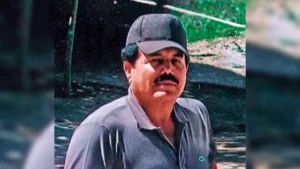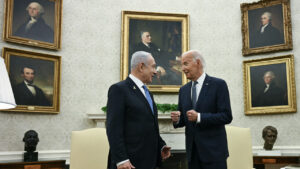
“O Government of Azerbaijan and the UN reached an agreement on a mission in the region. The mission will take place this weekend” and following “an invitation and with the full support of the Government of Azerbaijan”, he declared.
“We have not had access to this region for around 30 years”, due to the “complicated geopolitical situation”, and “it is very important that we can enter”, added the UN Secretary-General’s spokesperson.
The team of a dozen people, led by officials from the UN Humanitarian Affairs Office (OCHA), “will seek to assess the situation on the ground and identify the humanitarian needs for the people who remain and also for those who move.”
“It is necessary to remember the need for everyone to respect international law, in particular related to human rights”, he added, to point out that “in this initial mission”, which will focus on “humanitarian and protection” issues, no representative will participate of the High Commissioner for Human Rights.
The European Union had previously suggested sending a United Nations mission to Nagorno-Karabakh due to the “mass exodus” of Armenians fleeing this enclave following Azerbaijan’s military operation.
Stéphane Dujarric also pointed out that the UN works with the Armenian Government to face this influx of refugees crossing the border.
“Teams from the High Commissioner for Refugees have been on the ground at the border since the first day, when the first group of refugees arrived exhausted, fearful and worried about their future”, he noted.
UNHCR provides assistance in terms of technical equipment (including computers and tablets) to allow refugees to register.
On September 19, Azerbaijan launched a 24-hour military operation in Azerbaijani territory with a majority Armenian population, which the separatists say caused two hundred deaths and more than four hundred injuries.
A day later, authorities in Nagorno-Karabakh agreed to Azerbaijani military demands. The ceasefire was mediated by the peacekeeping force that Russia has sent to Nagorno-Karabakh since the 2020 war, when Azerbaijan regained some of the territory it had previously lost to Armenian separatists.
The Government of Armenia estimates that more than 88 thousand displaced people, among the approximately 120,000 inhabitants of the territory, have already arrived in the country fleeing the enclave, around two thirds of the population.
Nagorno-Karabakh, with a majority Orthodox Christian Armenian population, declared independence from Muslim Azerbaijan after a war in the early 1990s that left around 30,000 dead and hundreds of thousands of refugees.
Following this conflict, a ceasefire was signed in 1994 and mediation was accepted by the Minsk Group (Russia, France and the United States), constituted within the Organization for Security and Cooperation in Europe (OSCE), but armed skirmishes continued to be frequent, and resulted in serious clashes in 2018.
About two years later, in the autumn of 2020, Armenia and Azerbaijan faced each other for six weeks for control of the enclave during a new war and with a heavy Armenian defeat, which lost an important part of the territories it had controlled for three decades.
After signing an agreement under Russian mediation, Azerbaijan, militarily supported by Turkey, recorded important territorial gains and Moscow sent a peacekeeping force of 2,000 soldiers to the Nagorno-Karabakh region.
Despite the timid diplomatic clarification, armed incidents remained frequent in the area or along the official border between the two countries, culminating in the serious border incidents of September.
On January 10th, and in an unprecedented move, Armenia announced that it would refuse to host joint military maneuvers this year within the framework of the Collective Security Treaty Organization (OTSC, a military alliance led by Russia and bringing together six ex-Soviet republics ), due to dissatisfaction over the blockage of the Lachin corridor.
In an apparent departure from its powerful Russian ally, the Yerevan Government also admitted Western involvement (USA and European Union) in the negotiation process and recently promoted joint military maneuvers with a small North American force.
Read Also: Government of Azerbaijan invites UN mission to visit Nagorno-Karabakh
All News. By the Minute.
Seventh consecutive year Consumer Choice for Online Press.
Download our free App.

Source: https://www.noticiasaominuto.com/mundo/2410479/nagorno-karabakh-onu-envia-1-missao-humanitaria-dos-ultimos-30-anos


